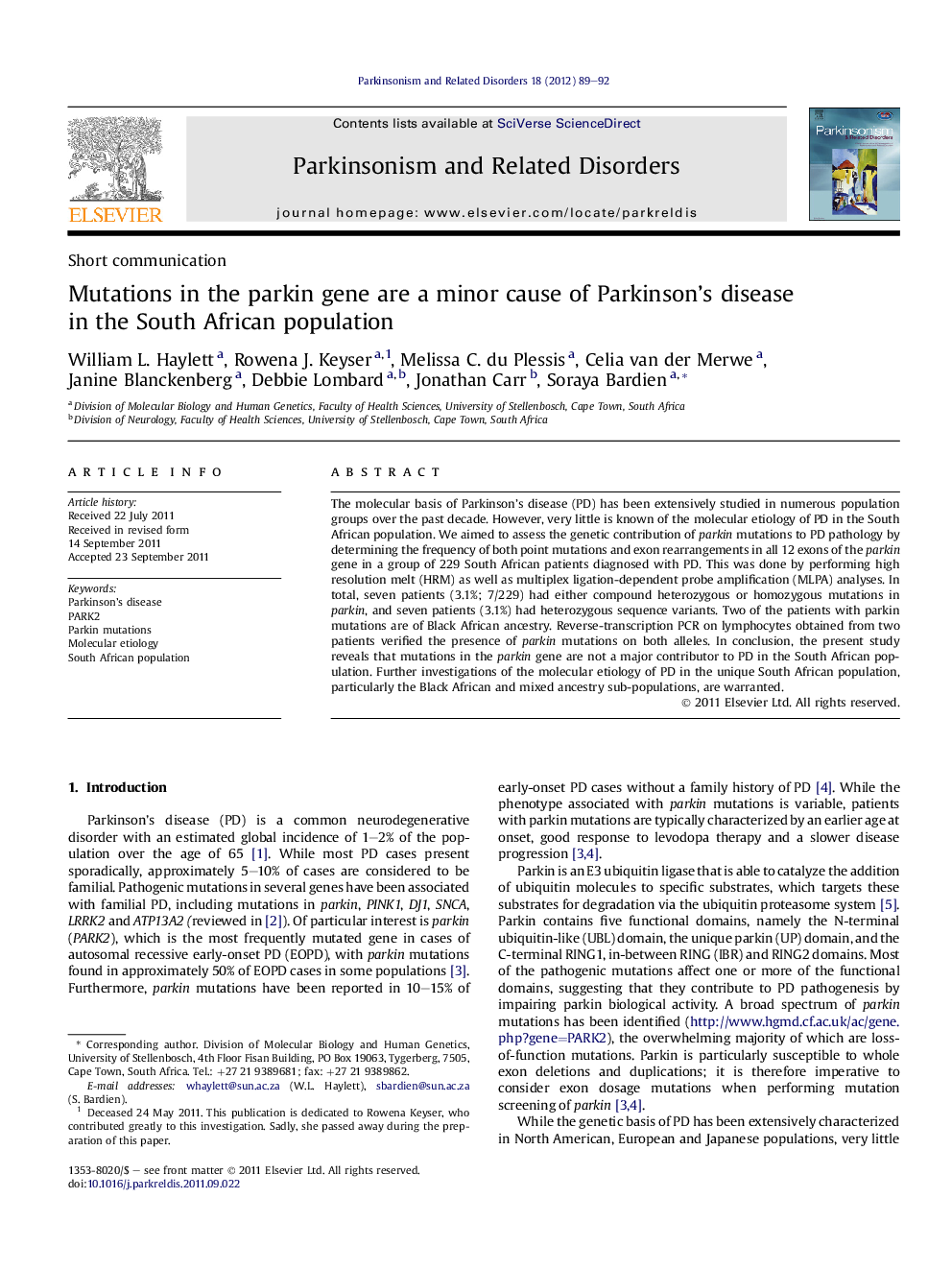| Article ID | Journal | Published Year | Pages | File Type |
|---|---|---|---|---|
| 1920673 | Parkinsonism & Related Disorders | 2012 | 4 Pages |
The molecular basis of Parkinson's disease (PD) has been extensively studied in numerous population groups over the past decade. However, very little is known of the molecular etiology of PD in the South African population. We aimed to assess the genetic contribution of parkin mutations to PD pathology by determining the frequency of both point mutations and exon rearrangements in all 12 exons of the parkin gene in a group of 229 South African patients diagnosed with PD. This was done by performing high resolution melt (HRM) as well as multiplex ligation-dependent probe amplification (MLPA) analyses. In total, seven patients (3.1%; 7/229) had either compound heterozygous or homozygous mutations in parkin, and seven patients (3.1%) had heterozygous sequence variants. Two of the patients with parkin mutations are of Black African ancestry. Reverse-transcription PCR on lymphocytes obtained from two patients verified the presence of parkin mutations on both alleles. In conclusion, the present study reveals that mutations in the parkin gene are not a major contributor to PD in the South African population. Further investigations of the molecular etiology of PD in the unique South African population, particularly the Black African and mixed ancestry sub-populations, are warranted.
